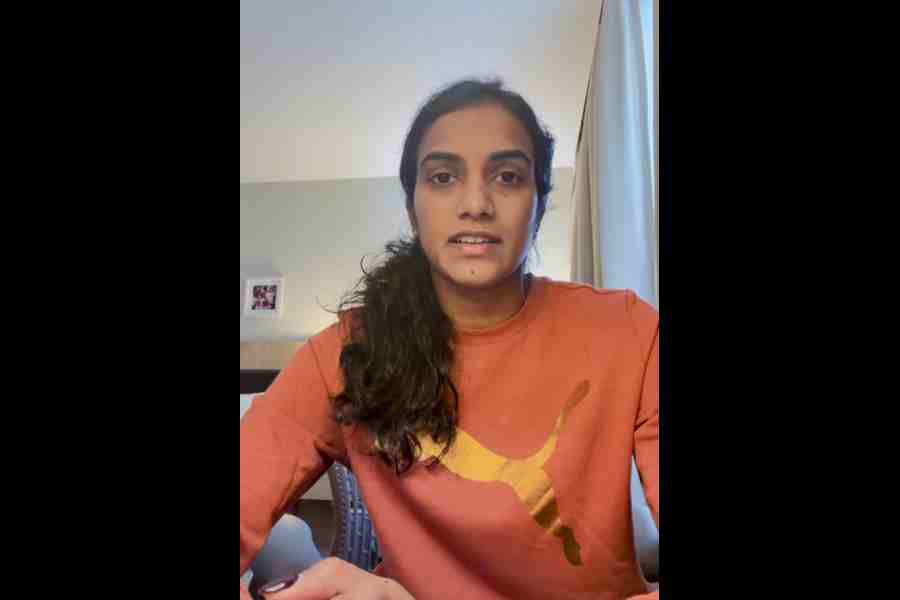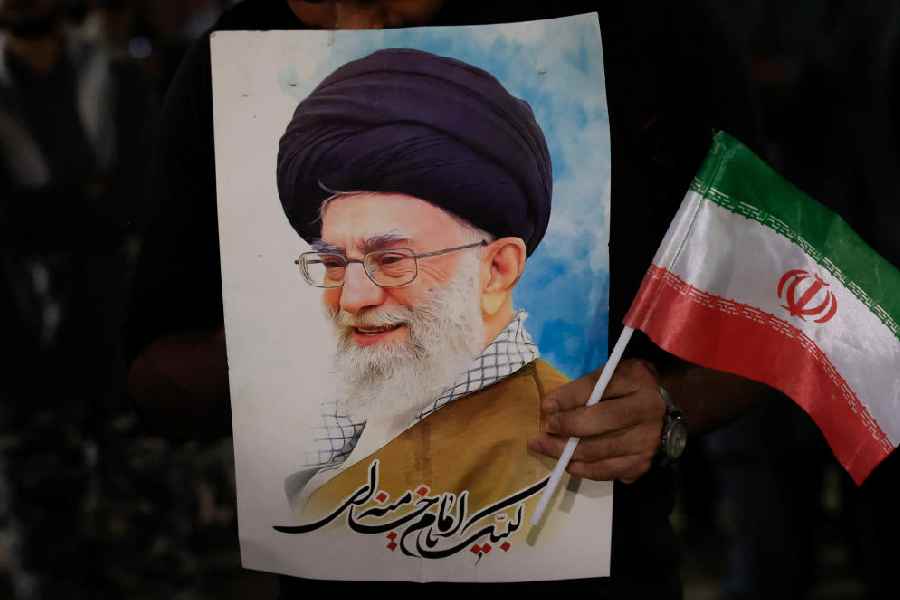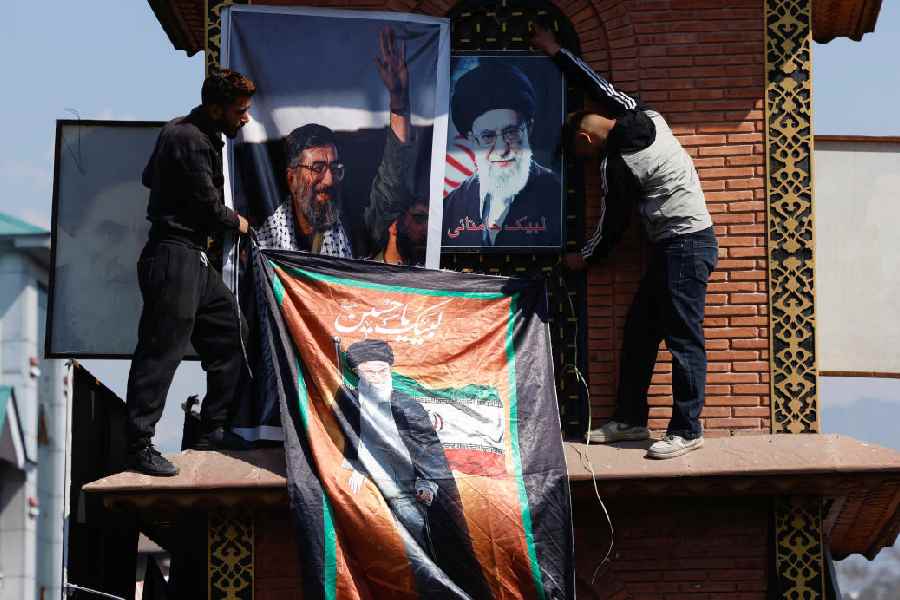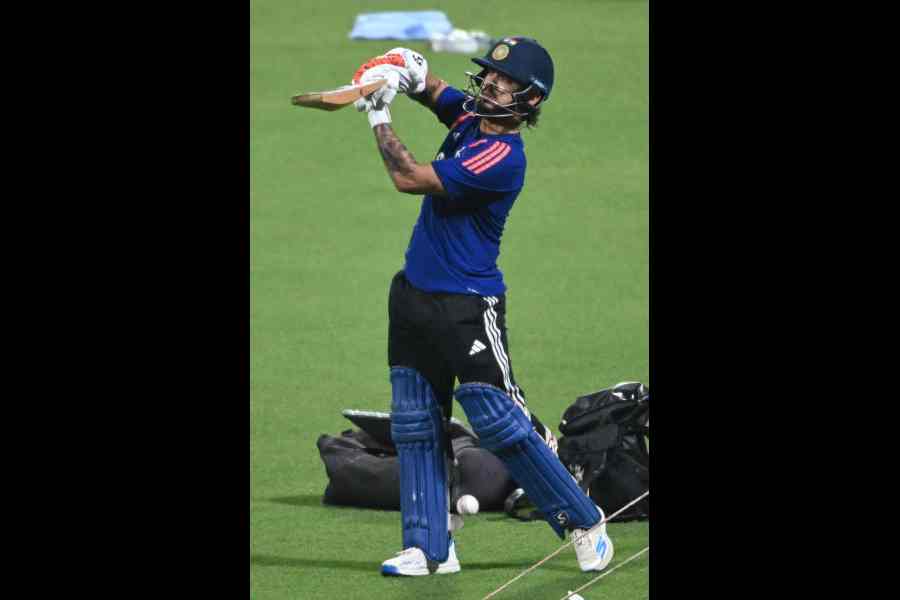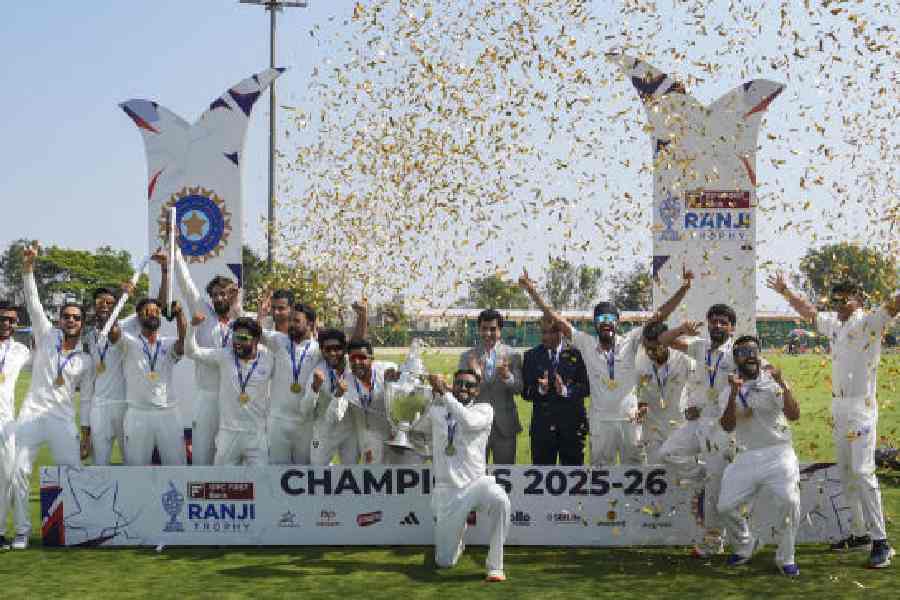

There is nothing remotely angsty about Anurag Kashyap. His films are a hit, and he has a legion of fans. The frontrunner of Indian arthouse cinema, in fact, holds that he is 'living' his 'dream'.
Seventeen years of struggle could up anybody's angst levels. But the 41-year-old filmmaker shrugs off those days when he slept on pavements, worked in hotels, staged plays outside Prithvi Theatre, ghost wrote scripts and penned TV scripts.
You'd expect a bit of anguish in a man who faced stumbling blocks even when he had got his first break. Nothing went right for years: his first film Paanch — loosely based on the real life case of a group of killer-students of Pune — did not get a censor's certificate to begin with and later faced financial problems. His second film on serial killer Auto Shankar was scrapped midway.
Yet Kashyap is insouciant.
'To me it was all an adventure. I did not even realise they were hard days,' he says.
He can afford to say that now that he is an immensely successful director — his films including Dev.D and Gangs of Wasseypur 1 and 2 have met with critical and popular acclaim. But Kashyap is a filmmaker of a kind; his cinema — showing unmitigated violence, occasionally a decapitated head and often candid sex — does not always go down well with viewers. What's equally true though is that you cannot, as the clich� goes, ignore the man and his films.
Take his latest film. Ugly was stalled because he moved court, refusing to crop scenes that showed characters smoking, as directed by the censor board, arguing that it was his fundamental right to show a scene which featured tobacco.
He lost the case. The film, a psychological thriller about the kidnapping of a 10-year-old girl, has been shown in festivals abroad and received good reviews. Kashyap says he realises that his 'self indulgence' is hurting producers and so is readying for an Indian release. But what is his obsession with walking on the dark side?
'I enjoy the darker side of things. I'm interested in violating a person's sense of being. I like to shake people up and make them restless,' Kashyap admits with a grin. But he is quick to add that his fascination with crime does not stem from any violent incidences in his childhood.
Instead, quite flatly, it turns out that his muse is Fyodor Dosteovsky's Crime and Punishment, the works of American crime writer James Cain and the early films of Francis Ford Coppola.
The son of an Uttar Pradesh power corporation employee, Kashyap landed up in Mumbai in 1993 with a few thousand rupees and a dream stoked by Vittorio De Sica's Bicycle Thieves.
The mandatory struggle followed — and then Satya happened. He won fame with the script he wrote for his former mentor Ram Gopal Varma. But it was Dev.D that catapulted him into the A-lister filmmaker slot. Soon he was the reference point for a steady stream of new wave filmmakers wanting to tell their stories as they saw it.
It's not easy, however, to get Kashyap to tell his story — though when he starts, he happily covers a wide range of topics. It's after a day of being pursued on the sidelines of a scriptwriting workshop at Adishakti Theatre (run by theatre director Veenapani Chawla) in Puducherry, that he finally — albeit — reluctantly agrees to an interview.
Clad in casual, three-quarter khaki shorts and a grey T-shirt, sporting a pair of dark glasses and an easy smile, he is easy to talk to. He speaks spontaneously, narrating stories about Bollywood, the stars, the system, political figures (as news of the BJP win filters in and conversations veer towards moral policing), his movies and himself.
From narrating a funny story about Sunny Leone (the porn star had asked director Pooja Bhatt for medical certificates of her co-stars while shooting for Jism 2 only to be told she didn't have to have real sex with them), he freely moves on to the women in his life.
'I've always been in love with incredible women,' Kashyap says.
'My first wife, Aarti Bajaj, is the finest film editor in Mumbai (editor of Paan Singh Tomar, Jab We Met and his latest film Ugly). Kalki, my second wife, is a fiercely independent woman. I cannot stand women who survive on their looks. They will bore me in two minutes,' he says.
There are rumours that he and Kalki Koechlin are living separately. 'In my relationships, women have their own space, I have mine and we create a space when we come together,' he says.
Kashyap's reputation in the industry is such that he is forever being dogged by aspiring actors and song composers. 'Anyone not fair or not good-looking comes to me hoping he will get a chance. I don't see myself as a saviour. I feel bad saying no. But I need time to make my own films,' he says.
To solve the problem, Kashyap, who now also runs a production house, has appointed a team to vet scripts before they reach him and a casting director to screen potential actors. One Sunday a month, he watches short films sent to him.
'Eighty per cent of the people who knock on my door just want to be part of the Bollywood glamour. But people in show biz have screwed up their lives — many don't have a personal life. Why do so many relationships break up in the industry? People don't spend enough time with each other; they are busy with their schedules.'
Kashyap is rather busy with his schedule too. He works on two or three films at a time, he says. He co-produced and edited the hugely successful Queen. Currently, he is working on his first mega project, the hush-hush Rs 110-crore period film Bombay Velvet, co-produced by Fox Star, and set to release by November end.
Having completed the shoot in 75 days in Sri Lanka, he is tense about the film because of the money riding on it. 'I usually make my films on tight budgets and the way I want it. But this film has to be a commercial success as well,' he says.
The film revolves around an ill-fated love story between a caf� bar manager/small time fighter Ranbir Kapoor and a jazz singer, Anushka Sharma, in the Bombay of the 1960s. The story of the film is heavily under wraps but Kashyap reveals that Kapoor worked hard to get the look of a fighter. He also roped in filmmaker Karan Johar to play the negative role of a Parsi businessman.
He is busy editing the film, but also working on his next script based on the emotional relationship between a father and a daughter.
The idea appealed to him because of the close relationship he shares with his 13-year-old daughter. 'I have just bought her a house since I have started making money after Gangs of Wasseypur,' he says. He made a film dedicated to her, called Hanuman Returns, in 2007.
'I love taking her out and spending time with her. We will go diving soon, something I discovered two-and-a-half years ago,' he says.
After a film's release, Kashyap usually unwinds by diving and swimming to stave off an operation for an injured knee. He likes to cook — he says he's stolen his mother's cook from back home and they experiment together.
His 30 women assistant directors and his partners are his biggest critics and keep him grounded. 'They don't give a shit about who I am,' he says. His knowledge of foreign films is huge and he advises the participants at the workshop to watch films such as Lars von Trier's Nymphomaniac for the way it handles nudity or the Oscar-nominated Belgian film Bullhead. He advises them to watch films by a director he greatly admires, Martin Scorsese, and read the works of scriptwriter Abrar Alvi.
Last year, he received the French honour The Knight of the Order of Arts and Letters. The subject sets him off about the lack of support for Indian filmmakers from the information and broadcasting ministry. 'They treat filmmakers like nautankiwallahs. We face problems shooting in India; most of us go abroad to shoot. Their whole attitude smacks of abhi jao yahaan se (scram),' he says
On the other hand, when he shot Bombay Velvet in Sri Lanka, the government diverted traffic in the city centre so that he could shoot freely. 'Also, I got ministers and other important people to form the elite crowd I needed for my movie because they were asked to co-operate with me,' he says. 'I meet the most incredible people, I am friends with big stars people can only hope to be friends with.'
But, he adds, leaning forward to stress the point, making money is not what he's after. The crowd of participants around us hangs on to his every word. 'I have no hunger to break box office records. I just don't want anybody to lose money. I am focused about making films I want to with no compromises. Once you start counting money you lose the wonder of making films,' he says with feeling.
Making money is easy — 'I can easily do a class abroad and receive Rs 12 lakh for one hour and live like a king,' he says, adding that he does take three classes a year. What he doesn't want to do, he maintains, is sell out.
'I have no regrets. I travel around the world, I live my dream.' Well, how many of us can say that?



